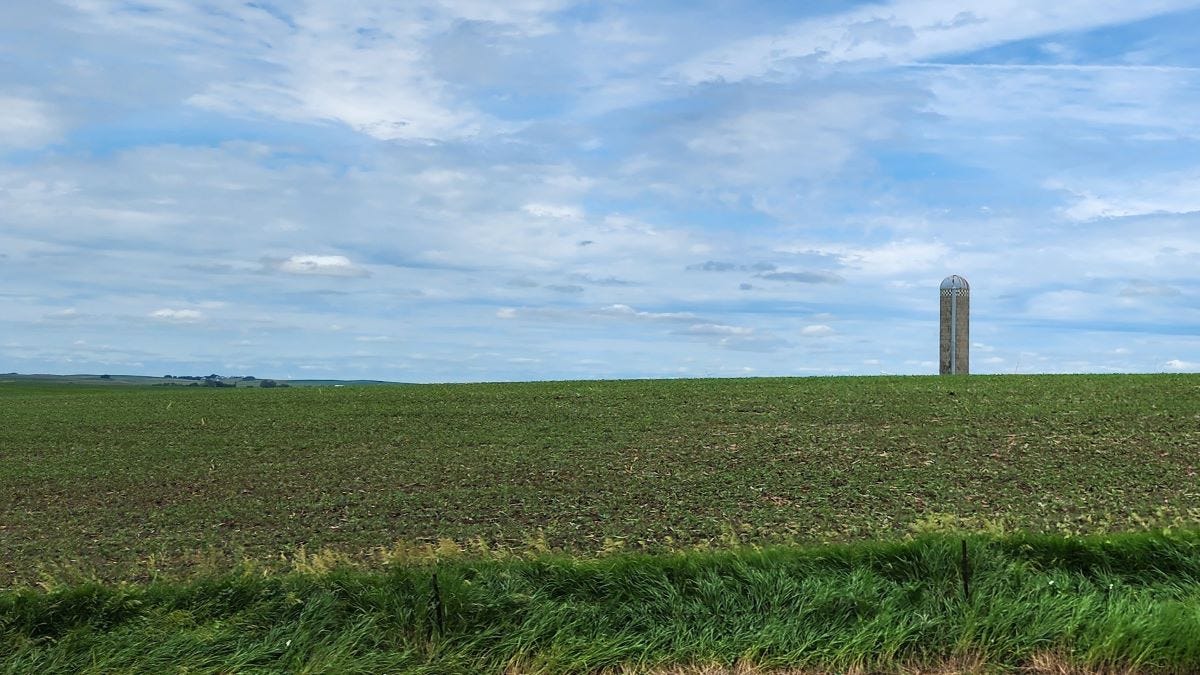Changing fortunes
On Hurricane Beryl, small-town flooding, and the need to maintain perspective about worst-case scenarios
As of late March, just a little more than three months ago, more than 80% of the state of Iowa was rated at some level of moderate drought or worse. In October, that value was greater than 95%.
■ A few places in the state are still "abnormally dry", but the drought has been erased statewide. Drought, though, has been replaced by catastrophic flooding; Spencer, Iowa, lost 1,000 homes to a flood that evolved basically out of nowhere. Not far away, places like Correctionville, Iowa, North Sioux City, South Dakota, and Mankato, Minnesota experienced comparable levels of devastation. The drought-to-flood reversal wasn't literally overnight, but it was fast enough to defy normal human expectations. (For an even faster deterioration of conditions, see the record-smashing intensification of Hurricane Beryl.
■ These are climatological manifestations of a maxim worth remembering in lots of other areas of life: Things are rarely as bad as they seem, but they can get much worse much faster than we can imagine. As humans, we seem predisposed to over-estimating how bad things are in the moment right before our eyes, and to under-estimating how much preparatory work needs to be done from day to day to keep the worst from happening.
■ There are plenty of people who take those preparations too far, but usually only in isolation: Think of climate catastrophists, doomsday preppers, and death-of-democracy keyboard warriors. The problem with a singular fixation is that it tends to result in blindered thinking, like that of the climate activist who wants economic "de-growth" or an intentional decline in the population, but who won't entertain the possibility of advanced nuclear power generation.
■ The drama of a "solution" isn't a good measure of its sensibility. Figuring that out and intentionally finding ways to build constructively, iteratively, and persistently toward the more prudent long-term solutions that bear fruit with less fanfare.



